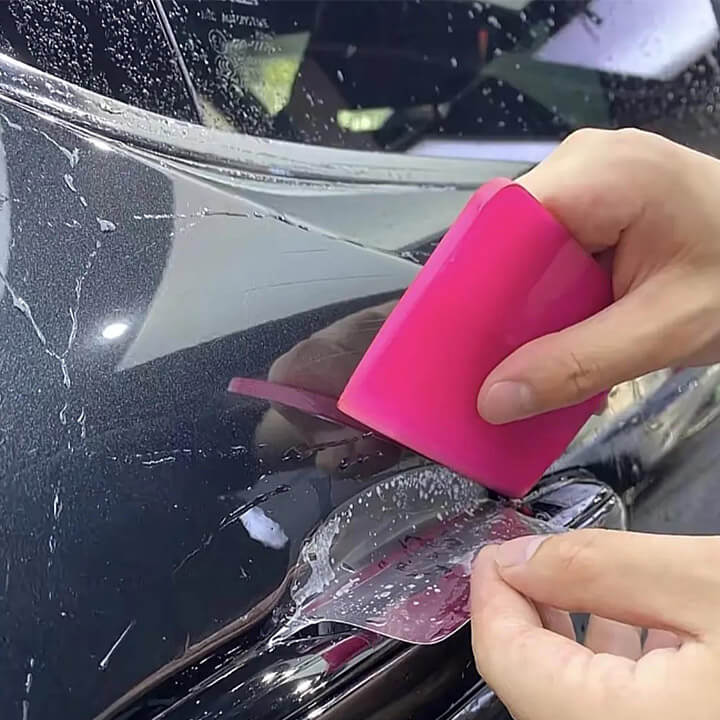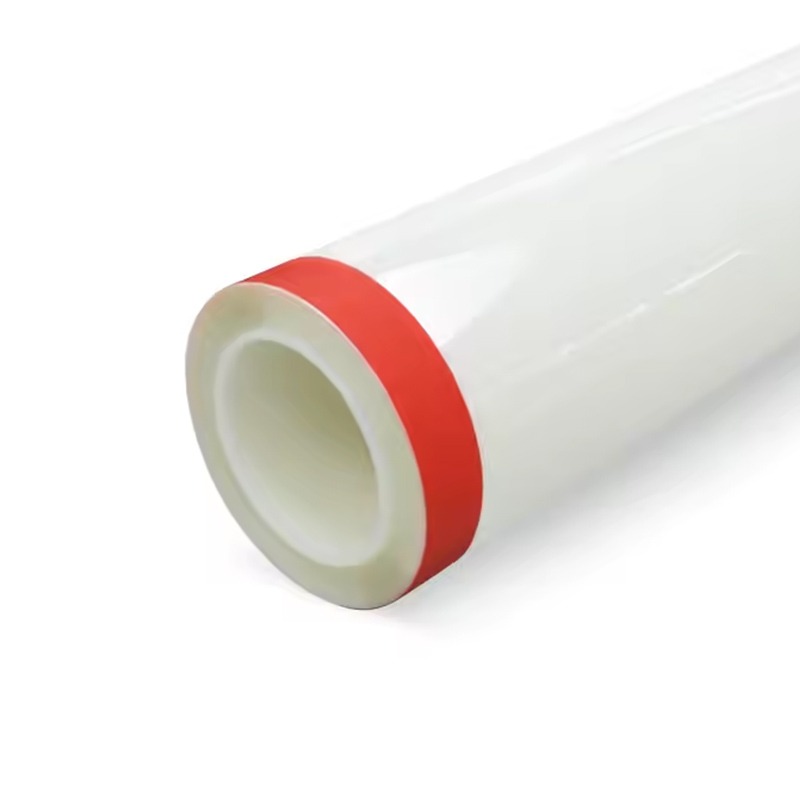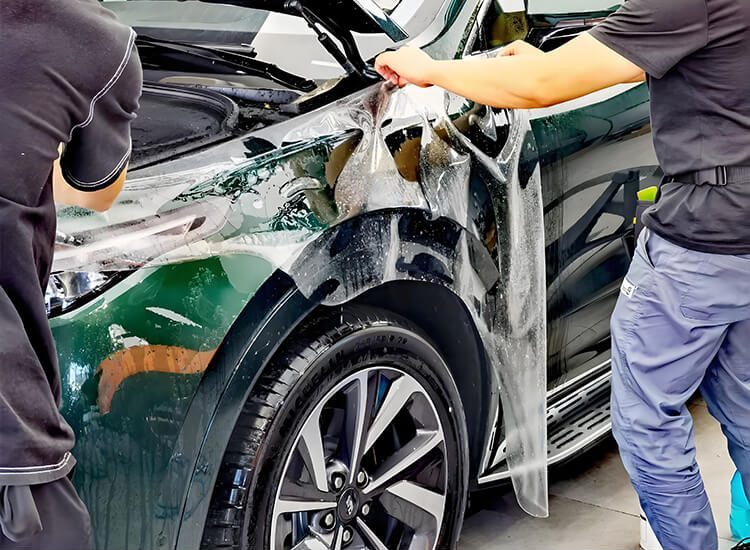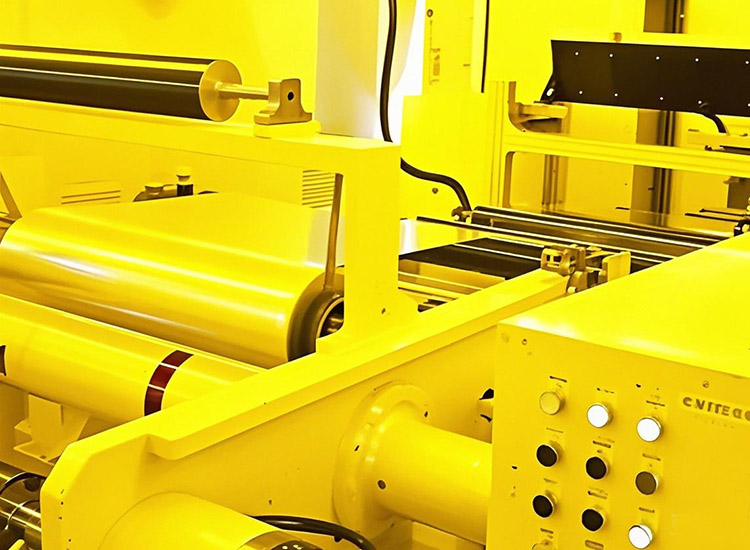5 Myths About PPF on Car You Should Stop Believing
When it comes to protecting your car’s paint, Paint Protection Film (PPF) is often surrounded by a lot of confusion. Many drivers hear conflicting opinions about its value, durability, and even its impact on car paint. In cities like New York, London, and Dubai, car owners often face the dilemma: Is PPF on Car Worth It or just a marketing gimmick? This article uncovers the truth by addressing five common myths about PPF on cars and sharing real facts to help you make the right decision.

Myth 1: PPF on Car Is Just a Waste of Money
Some believe that installing PPF is unnecessary because modern car paints are strong enough. The truth is, factory paint can’t fully resist stone chips, scratches, or UV damage. PPF on car acts as a sacrificial layer, absorbing impacts from road debris and preventing expensive paint repairs. In places like Sydney or Toronto, where road conditions vary, investing in PPF saves long-term repair costs and preserves resale value. It’s not an expense; it’s a smart investment in your vehicle’s longevity. For more details on why it matters, check out Benefits of PPF on Car.
Reality Check
PPF can last 5–10 years with proper care. Considering the cost of repainting a car versus applying PPF, the latter offers better value for money. Curious about durability? Here’s How Long Paint Protection Film Last? to learn more.
Myth 2: PPF on Car Damages the Paint
One of the biggest ppf misconceptions is that it will harm your car’s original paint. This is far from true. High-quality films, like TPU-based products, are designed to be safe on factory paint. When installed correctly, they protect against scratches and can even self-heal from minor abrasions. The only risk comes from poor-quality films or unprofessional installation. That’s why it’s essential to choose a trusted installer.
Reality Check
Instead of damaging paint, PPF prevents oxidation, UV fading, and paint chipping. It actually keeps the factory finish intact, making it look newer for longer.
Myth 3: PPF on Car Turns Yellow Quickly
You’ve probably heard someone say, “Paint Protection Film turns yellow after a year.” While that might have been true for old PVC films, modern TPU technology is highly resistant to yellowing. Reputable brands offer films with advanced topcoats that fight UV discoloration and maintain clarity for years, even in sunny regions like California or Spain. Want to know which brands stand out? Check this guide: Top 10 Car PPF Brands.
Reality Check
Yellowing occurs mainly with cheap or low-quality films. Premium PPF products from reputable manufacturers can stay clear for years if properly maintained.
Myth 4: PPF Is Too Hard to Maintain
Another false belief about PPF is that it requires special maintenance. While PPF does need care, it’s far easier than repainting your car. All you need is regular washing and occasional detailing to keep it in top shape. Some even apply ceramic coatings over PPF for added hydrophobic properties, making cleaning effortless. If you’re planning installation, it’s important to know the exact PPF Usage Volume to avoid waste and save money.
Reality Check
Maintenance is minimal compared to the benefits. Forget about polishing scratches or worrying about rock chips—the PPF takes care of it.
Myth 5: PPF on Car Is Only for Luxury Vehicles
Many assume PPF is only worth it for high-end cars like Porsche or Ferrari. In reality, any car—whether it’s a daily driver or a premium model—benefits from paint protection film. From Honda sedans in Chicago to SUVs in London, PPF keeps vehicles looking great and helps retain resale value. It’s not about luxury; it’s about smart protection. Wondering about pricing for your model? Read more about the Cost of PPF on Car.
Reality Check
PPF is for everyone who wants to avoid costly paint repairs and maintain their car’s showroom finish, regardless of brand or price.
The Truth About PPF: Myths vs Facts
As you can see, these PPF on car myths don’t hold up against real-world facts. Whether it’s about cost, durability, or maintenance, the truth is that PPF offers long-term protection and peace of mind. If you drive in harsh weather conditions, on gravel roads, or simply want your car to look brand-new for years, PPF is the best solution.

PreproPPF Clear PR-Q01
On a budget? Check out basic protection PPF PR-Q01, 5×50 ft, free shipping worldwide.
About Factory PreproPPF from China
PreproPPF is a leading paint protection film manufacturer with a commitment to quality and innovation. We offer factory-direct pricing and free global doorstep delivery, ensuring customers in any country can access premium TPU-based PPF. Our products are trusted worldwide for their durability, clarity, and easy installation. If you want the best protection for your car, choose PreproPPF for unmatched value and performance.
FAQs
1. Is PPF on a car worth it or not?
Yes, it saves on repainting costs, prevents scratches, and maintains resale value.
2. Is PPF Good or Bad for Cars?
PPF is good for cars because it protects the paint from scratches, chips, and UV damage, helping maintain the vehicle’s value.
3. What Are the Negatives of PPF?
Some negatives include the initial cost, potential yellowing with low-quality films, and the need for professional installation for the best results.
4. Does PPF Devalue a Car?
No, PPF does not devalue a car. In fact, it helps preserve the original paint, which can increase resale value.
5. Does PPF on a car cause damage to the paint?
No, quality PPF protects paint and can be safely removed without harm.
6. How long does PPF last on a car?
Most high-quality films last between 5 and 10 years with proper care.


